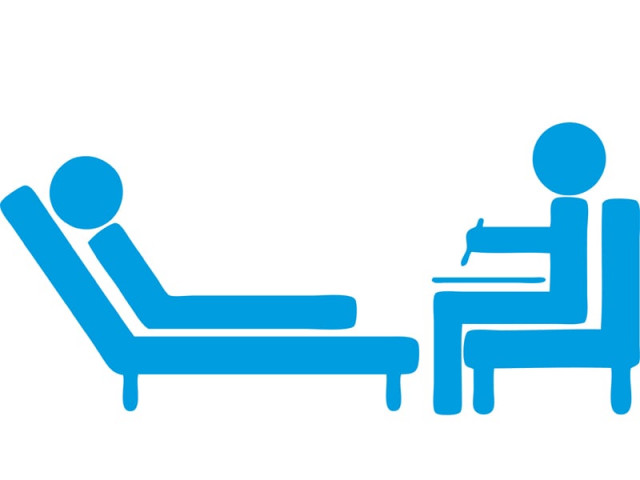Are we ready for psychotherapy?
Psychologists in Lahore talk about the myths attached to consulting therapists.

Psychologists in Lahore talk about the myths attached to consulting therapists.
Going to a therapist regularly is a good practice that keeps your mind healthy and focused. However, societal pressures work against therapy in Pakistan, as older generations have this complex that asking for a therapist’s help is a defeatist attitude.
Trying to break the norms of the society, three young therapists talked to The Express Tribune regarding problems they face. But let’s first understand the difference between a psychologist and a therapist. While a psychologist is a clinical practitioner, a therapist is a counsellor and helps working through your problems verbally and if need be, refers clients to a psychologist.
“While therapy is a taboo to a certain extent, people are more willing to send their children for counselling in order to help them overcome everyday problems,” says child therapist Natasha Wali, who is a fresh graduate from Columbia University and has a Masters degree in Counselling.

Wali says a therapist has to avoid using words like dyslexia or ADHD (attention deficit hyperactivity disorder) in front of parents because they start worrying about their children. She believes anxiety and depression can alter a child’s performance in school. “Teachers here [in Pakistan] tend to marginalise children by calling them names and that is detrimental to the mental growth of a child. One has to be very delicate with the terms used because it is very sensitive.”
The therapist raises her concern about quacks and under-qualified therapists who are offering their services. “Therapy is such a sensitive area that one bad experience can drive people away from it,” she says.
Another therapist, Jasmyn Rana seconds Wali’s belief and admits that there are under-qualified people practicing the profession. Rana, who is a Masters in Counselling from Monash University, Melbourne, currently works at Therapy Works in Lahore. “There are only a handful qualified counsellors in town,” says Rana.
Rana feels that there is a growing change in the attitude towards therapy. “All precautions are taken when it comes to assuring confidentiality of the client,” she says, adding that there are even different waiting rooms for different therapists so clients don’t know who else is coming to the clinic.
Rana reveals the most common problem which clients come with are the issues they face with their in-laws. “Women are more inclined to send their children rather than coming themselves [for therapy],” shares Rana. “It takes a while for them to open up and talk about their problems. The first session is the hardest.”
Marriage counselling is almost unheard of in Pakistan. The patriarchal society we live in does not believe in asking for help, says Maryam Sohail, who is a marriage and family counsellor at Therapy Works. Sohail, who is a graduate from Northwestern University, has been practising in Pakistan for the last two years. “Even though most clients are willing to come to therapy, it is a luxury that very few people can afford,” begins Sohail. She says that people do not consider therapy until they reach a critical stage.
She adds that issues such as a woman earning more than her husband and a man lead to passive aggressiveness which take a toll on the relationship. “You will be surprised at how many sexual complaints we get in these sessions and many of them come to therapy looking for solutions.” However, she adds the downside is that the client tends to place a lot of authority in the therapist which becomes uncomfortable.
Published in The Express Tribune, November 1st, 2013.
Like Life & Style on Facebook, follow @ETLifeandStyle on Twitter for the latest in fashion, gossip and entertainment.



















COMMENTS
Comments are moderated and generally will be posted if they are on-topic and not abusive.
For more information, please see our Comments FAQ